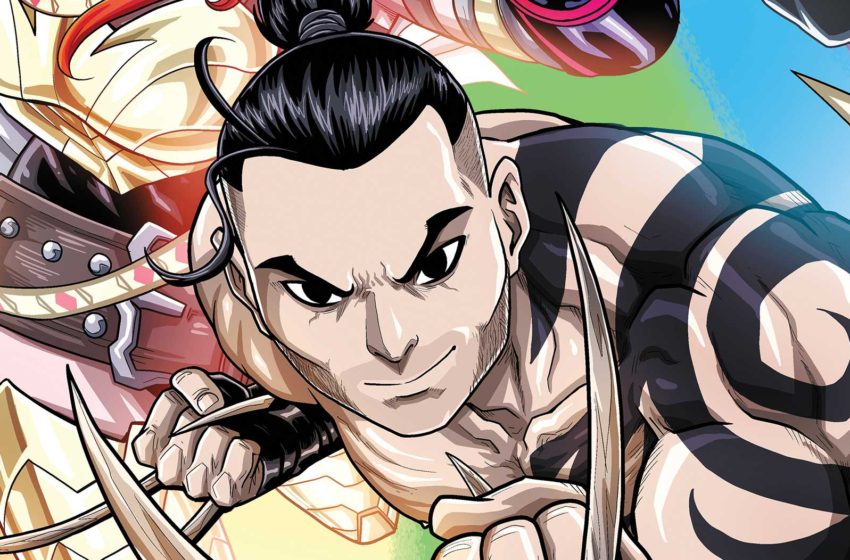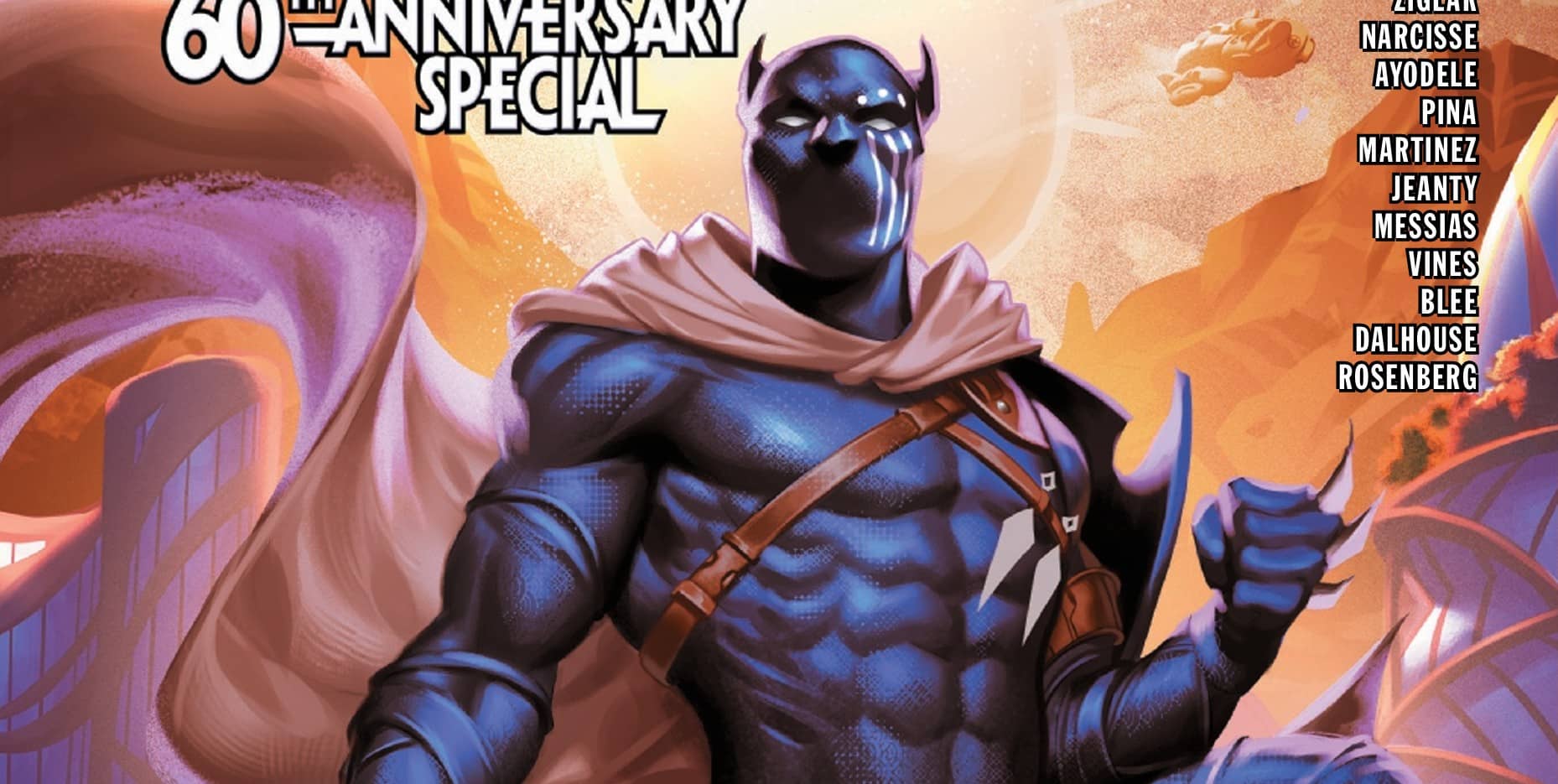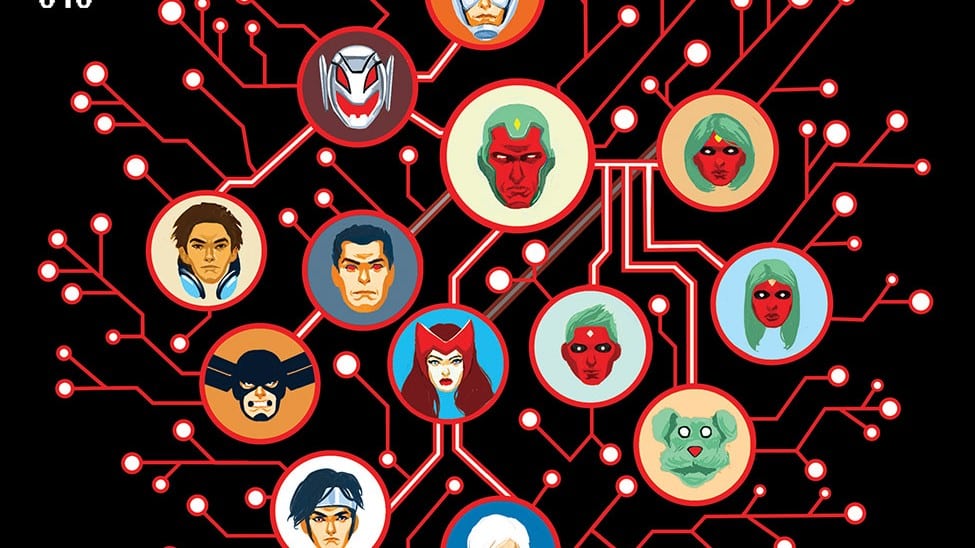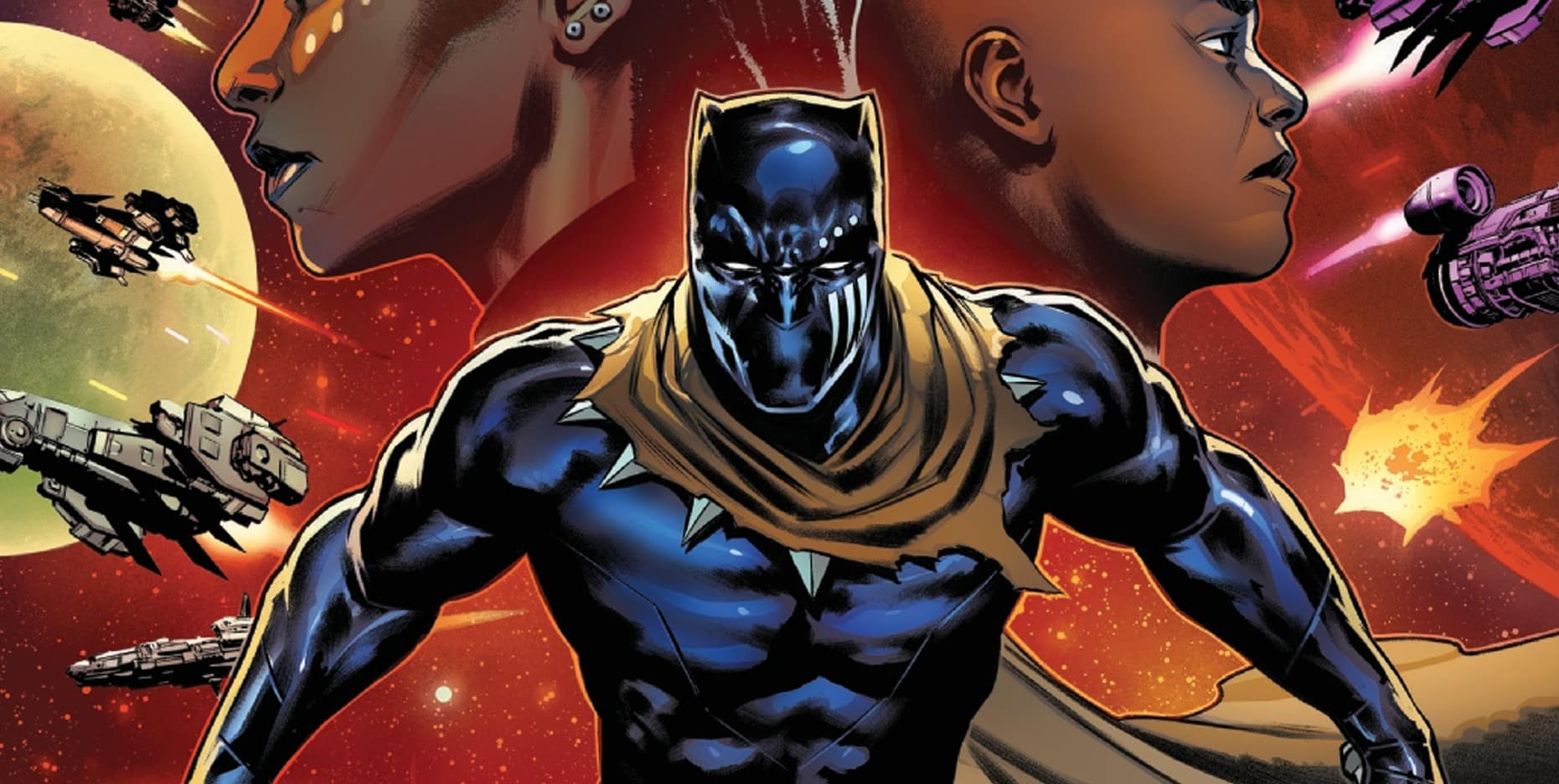This week, Marvel Comics is releasing the next in their series of Marvel Voices anthologies, designed to give exposure and voice to to a more demographically diverse segment of creators and characters. And since this is June, Pride Month, Marvel’s special is focusing on LGBTQA+ representation. Marvel Voices: Pride features stories from Luciano Vecchio, Mike O’Sullvian, Allan Heinberg, Jim Cheung, Marcel Maiolo, Kieron Gillen, Jen Kirkman, Brittany Peer, Crystal Frasier, Jethro Morales, Rachelle Rosenberg, Terry Blas, Paulina Ganucheau, Kendall Goode, Anthony Oliveira, Javier Garron, David Curiel, J.J. Kirby, Tini Howard, Samantha Dodge, Mariko Tamaki, Kris Anka, Tamra Bonvillain, Lilah Sturges, Derek Charm, Leah Williams, Jan Bazaldua, Erick Arcinega, Steve Orlando, Claudia Aguirre, Vita Ayala, Joanna Estep, Brittney L. Williams and Jacopo Camagni.
People here at the ComicsXF have feelings about this, and so, as opposed to our standard two-person reviews, or a one person, we have a point/counterpoint on this particular special, discussing its high points and its failings.
First up, we have Stephanie Burt:
I love this problematic, self-celebratory, gaudy anthology book. I love it, because I’m a camel. Let me explain.
I am, well, old., I remember buying Claremont/Byrne X-comics issues, starting with Uncanny X-Men #120, from a spinner rack at the Mini-Mall. I also remember feeling that mutant comics (and Legion of Super-Heroes comics) represented my kind, without knowing why. Older, I remember looking for reasons, and seeing myself in Kate Pryde, and in her relationship with Illyana Rasputin, and in Doug Ramsey’s connection to Warlock. Older still, I realized that these were queer characters, and queer connections. The comics could never quite say so, because it was the 1980s, and positive queer (not to mention trans) representation had to remain (to quote that noted homophobe Robert Frost) “under a spell, so the wrong ones can’t find it.” Part of the game of reading Claremont-era mutant comics– and other comics such as J.M. DeMatteis’s Defenders— was looking for secrets and clues, and later, among fans, sharing the clues we found.

Now, the clues aren’t clues: they’re advertised. Marvel Voices: Pride represents the first LGBTQ+ installment of the anthology series by which Marvel celebrates, and sometimes furthers, demographic diversity, both among characters and among creators (though Marvel’s high echelons remain white, straight and dudely). Trans rep alone in these 13 stories includes Marvel regular Vita Ayala (they/them), Lilah Sturges, Crystal Frasier, and Jan Bazaldua, along with prolific colorist Tamra Bonvillain; we also get cis queer regulars like Leah Williams. I love it: it made me squeak with private joy.
Because I am old, I’m delighted and even residually surprised when Marvel announces that longstanding secrets are no longer secrets rather than enraged when Marvel still plays coy. Because I am old, I have– to quote Sara Century– become a camel, gratefully thirsty for whatever drops I get of queer rep in the long straight desert of earlier Marvel books. I’m still a camel, and Marvel’s Pride is an oasis, even if bits of it are a mirage.
Speaking of Mirage, the biggest puzzle here implicates her: Ayala, whose work with Mirage (Dani Moonstar) and Karma (Xi’an Coh Manh) on New Mutants has been stellar, writes a cartoony teen-angst story that de-ages Xi’an something fierce and shows this strong adult (and onetime corporate leader) wringing her weirdly shy hands over whether she should ask a glamorous never-before-seen mutant to dance. Illyana both teases and encourages Xi’an until Xi’an and the new girl make big smoochies right on the dance floor. Why isn’t this out of character? Well, the new mutant, Galura, who has dark straight hair and light brown skin and a headband and wings like DC’s Native character Dawnstar, reads as a stand-in for Dani, who according to the feels and subplots of Ayala’s New Mutants absolutely should be, but isn’t yet, dating Xi’an, and adult Xi’an still might be scared about that. Voila: the kind of between-the-lines reading we camels long ago learned how to do.
We still do it. And yet, according to David Alleyne (Prodigy)’s frame tale, the story of the LGBTQ+ in the 616 is a slow, and then speedy, march towards acceptance: “It keeps getting better.” It’s Whig history, of course, and it’s corporate history, but what did you expect from a corporation? It’s also a concise intro to many queer characters new-ish readers need to know, especially Alleyne’s ex-teammates the Young Avengers, “the first mostly queer super-team.”
Alleyne also narrates my favorite tale here, “Colossus,” by Kieron Gillen and Jen Hickman: in it he tells us how he (Alleyne, not Gillen) learned he was bi when he realized Colossus was hot. “I spent the most hormonal years of my life in the X-Mansion,” David says (uh, me too). Borrowing other people’s knowledge with his mutant powers, David learned, “how they loved. How they lusted,” “what was similar. What wasn’t.” For example (drum roll) “Kitty Pryde…. By understanding her, I felt seen as myself.” Bingo. Bells ring (she’s Kitty back then, Kate now: it’s not a deadname but a nickname from her youth).
I’m not sure who felt seen by Northstar’s famous and over-the-top announcement in Alpha Flight #106 (1991) that though it was nobody’s business “I am Gay!!!!” The issue, to put it kindly, hasn’t aged well. Nonetheless it’s history: I recommend reading the two-page interview with then-associate editor Chris Cooper, and then skipping the Scott Lobdell/Mark Pacella story, unless you like big blocks of Canadian cheese.
As for in-universe trans rep, that’s here, though only in characters too small for Disney to veto (don’t look for Loki). Science person Charlene McGowan (Immortal Hulk; Gamma Flight) headlines Lilah Sturges and Derek Charm’s neat and funny story of how trans people have to explain ourselves to a well-meaning, clumsy cis world. Jessie Drake, Marvel’s first binary trans mutant, pops back into continuity after 27 years away, in a Black Cat tale: Bazaldua’s visuals are terrific there (just as they were when she drew Mr & Ms X), dynamic and pretty without abandoning real people’s bodies, and Leah Williams has clearly studied Drake’s first appearance (Marvel Comics Presents # 150-51). If you’re a camel you’ll greet her return with glee.
What if you’re not a camel? What if you want something more– or more original– than on-page, verbal acknowledgment that Red Queen Captain Kate Pryde is bisexual, more than Xi’an Coy Manh kissing a girl (any girl), more than the mere appearance of Jessie Drake? Marvel’s anthology frankly has less to offer you, in that case, than DC’s solid 2021 Pride book. But less ain’t nothing. Frasier and Jethro Morales set up a very funny and moving story in which She-Hulk fights Titania at a comics con… except that it isn’t She-Hulk, but a trans woman who cosplays She-Hulk, because they’re both tall, strong women… except that it’s really Titania, who swears she’s “totally cool with the gender people,” but still wants to punch the real She-Hulk. Fourth wall breakers unite! It’s perfectly ridiculous but, also, perfect.
We also get Mystique and Destiny doing Edwardian murders to protect their love; Nico and Karolina Dean smooching midair (drawn by Kris Anka!); Kyle Jinnadu telling his husband Northstar “Don’t be a jerk to people” (good luck with that); and the retconned, beautifully rendered gay moping of Silver Age Bobby Drake, consoled by a distractingly out-of-character Magneto. Could Marvel do better? Sure. But this camel still bent down low to take a long drink.

And offering a different opinion, here is Cori McCreery
I wanted to like Marvel Voices: Pride. I think their Voices line is important and want it to be successful and continue. But in this specific case, Marvel Voices had a direct competitor in DC Pride. And their competition did everything better.
DC’s Pride special was an actual celebration of queer voices and characters, there were stories that focused on their identities and the struggles of the community for sure, but there were also stories that were just fun comic set pieces about queer heroes. Only one story in the book felt completely out of place and self-serving, and it’s the one that just threw together queer heroes into a blender and expected you to enjoy a story just because they were there.
That’s what the entire issue of Marvel Voices: Pride felt like to me. That us queers are supposed to just be happy to be here. That we should be glad we’re given a single special this year. The very first panel of the book highlights Northstar’s coming out, a thing that happened 29 years ago, as a progressive action for Marvel. And sure, it was – at the time. But it’s been 29 years, you can’t pat yourself on the back for that moment forever without actually moving things forward.
The very next page highlighted a specific complaint that many queer voices have talked about. The fact that in 2021 Marvel still expects us to see a single gay kiss as revolutionary. It’s not, and expecting it to be is living thirty years in the past. Kate Pryde kissing a random tattoo artist in Marauders #12, and then doing or saying nothing about her sexuality for at least the next nine months worth of comics isn’t revolutionary, it’s cheap and cruel to a community that is demanding something, anything in the way of representation from a line of books that’s always been a metaphor for representation.
Marvel actually led the way with trans heroes in comics, with Sera way back in 2014. But here we are seven years later and Sera hasn’t even been seen for two years, since 2019’s Asgardians of the Galaxy #7. She gets a single panel in the opening story, talking about how important trans characters are, alongside a handful of other characters that are allowed to be trans (congrats Koi Boy, it’s finally text!). One of these characters gets a story in this volume and it has to be alongside a more popular cishet heroine, because trans characters can’t have a story of their own. DC Pride on the other hand, gave us both the first comic appearance of Dreamer (in a rockin’ action set piece where she’s just allowed to be a kick ass heroine) and a focus on the nonbinary Flash of Future State, Jess Chambers. Both of them got to be the sole lead of their stories, something Marvel couldn’t allow for trans people.

On top of the bare minimum representation this book offered, it was an incredibly self-serving and self-congratulatory volume. Every story seemed to scream “Look at us, we’re so progressive letting the queers have this tiny shred of representation!” While the DC special interspersed fantastic pinups from queer artists as storybreaks, Marvel used that same space as advertisements for “queer books,” like the time Kitty Pryde spoke out about racism and anti-Mutant sentiment, but because it’s a metaphor Marvel can now claim it’s also about LGBT rights. Like the first appearance of a trans character that has now appeared a total of three times in comics, her last appearance having been in 1994 before she got a nothing-burger story in this comic. Like the exceptionally homophobic Rawhide Kid series from 2003 (Marvel can’t even be bothered to hire proof readers for this special, as that book is labeled Rawhide Kide in the advert).
The most egregious of this self-congratulatory wankiness is the fact that Marvel decided the best use of space for this special was to reprint eleven pages from that aforementioned 1992 Alpha Flight comic. That is eleven pages that could have gone to expanding the stories they allowed queer creators to tell to actually allow some substance in them, but instead it’s used to pat themselves on the back about how forward thinking they were thirty–years ago. Instead of giving more room to queer voices, they gave eleven pages to serial sexual harasser Scott Lobdell and “mad about women criticicizing his work” Dan Panosian. Such a great and representative use of space there Marvel.
As to the actual stories in the issue? Two of them had the same exact plot beats of being scared to try to get into a relationship, both with characters that have been out for decades. In particular, Vita Ayala’s story that came on the back of months of teasing in New Mutants felt a bit rushed and not what it intended to be. It feels weird to have so much flirting between Dani and Xi’an only to have the girl that Karma gets with be someone completely new. But hey, at least she got to kiss a girl after nineteen years of being an out lesbian.
Then there was the bait and switch story about a trans She-Hulk, who was just a cosplayer. Marvel can’t even be bothered to put a story with Koi Boy or Sera in this special, one of our three stories with trans rep is a cosplayer fighting and befriending a cishet villainess. On it’s own the story would be cute, but in a book where we wanted to see representation from heroes? It felt borderline insulting.
Not borderline insulting though was putting multiple canonically heterosexual relationships in the final two-page Pride parade splash. Sure; Scott, Jean, and Logan are poly, but that doesn’t make them queer. But the more egregious one was putting Rhodey and Carol in that splash page (a couple that’s broken up in comics). Can’t even have one issue without focusing on the hets.
DC’s Pride special was a celebration. Marvel’s felt like an insult.







